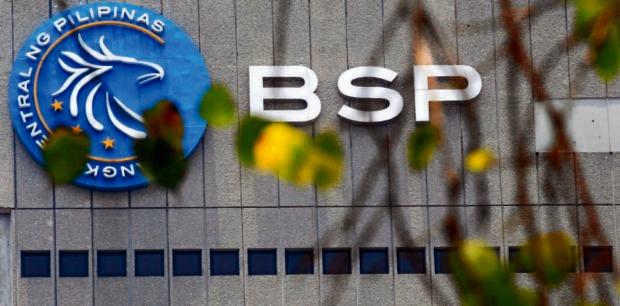Hot money flees PH in Sept, trebling year-to-date decline — BSP data

Bangko Sentral ng Pilipinas. (File photo / Philippine Daily Inquirer)
MANILA, Philippines — Short-term investments left the country’s financial markets at a faster rate in September, aggravating the the total tally of foreign portfolio funds that have been repatriated by fund managers since the onset of the coronavirus pandemic.
According to the Bangko Sentral ng Pilipinas (BSP), these so-called hot money for September 2020 yielded net outflows of $494 million resulting from the $1.1 billion gross outflows and $594 million gross inflows for the month.
This was larger than the recorded net outflows of $127 million in August.
The $594 million registered investments for the month reflected a 10.9 percent decline compared to the $667 million recorded for August 2020.
About 92.5 percent of investments registered were in Philippine Stock Exchange-listed securities, pertaining mainly to holding firms, property companies, food, beverage and tobacco firms, banks and retail companies. The remaining 7.5 percent went to investments in peso-denominated government securities.
Singapore, the United Kingdom, the United States, Luxembourg and Switzerland were the top five investor countries for the month, with combined share to total at 82.6 percent.
Outflows for September of $1.1 billion were higher compared to the level recorded for August of $793 million by 37.1 percent or by $294 million. The US received 61 percent of total outflows.
Foreign portfolio investment transactions from January to September yielded net outflows of $4.4 billion resulting from the $12.1 billion gross outflows and $7.7 billion gross inflows for the said period. This was 236 percent higher than that net outflows registered during the same period last year.
The central bank said the January to September surge in outflows were “brought about by uncertainties due, among others, to the ongoing impact of the COVID-19 pandemic to the global economy and financial system coupled with international and domestic developments such as geopolitical tensions, certain corporate governance issues and extended quarantine measures in select regions in the country.”
Meanwhile, year-to-date transactions for all investments — PSE-listed securities, peso bonds and other investments — resulted in net outflows.
Registration of inward foreign investments with the BSP is optional under the liberalized rules on foreign exchange transactions. The issuance of a BSP registration document entitles the investor or his representative to buy foreign exchange from authorized agent banks or their subsidiary and affiliate foreign exchange corporations for repatriation of capital and remittance of earnings that accrue on the registered investment. Without such registration, the foreign investor can still repatriate capital and remit earnings on his investment but the foreign exchange will have to be sourced outside the banking system.